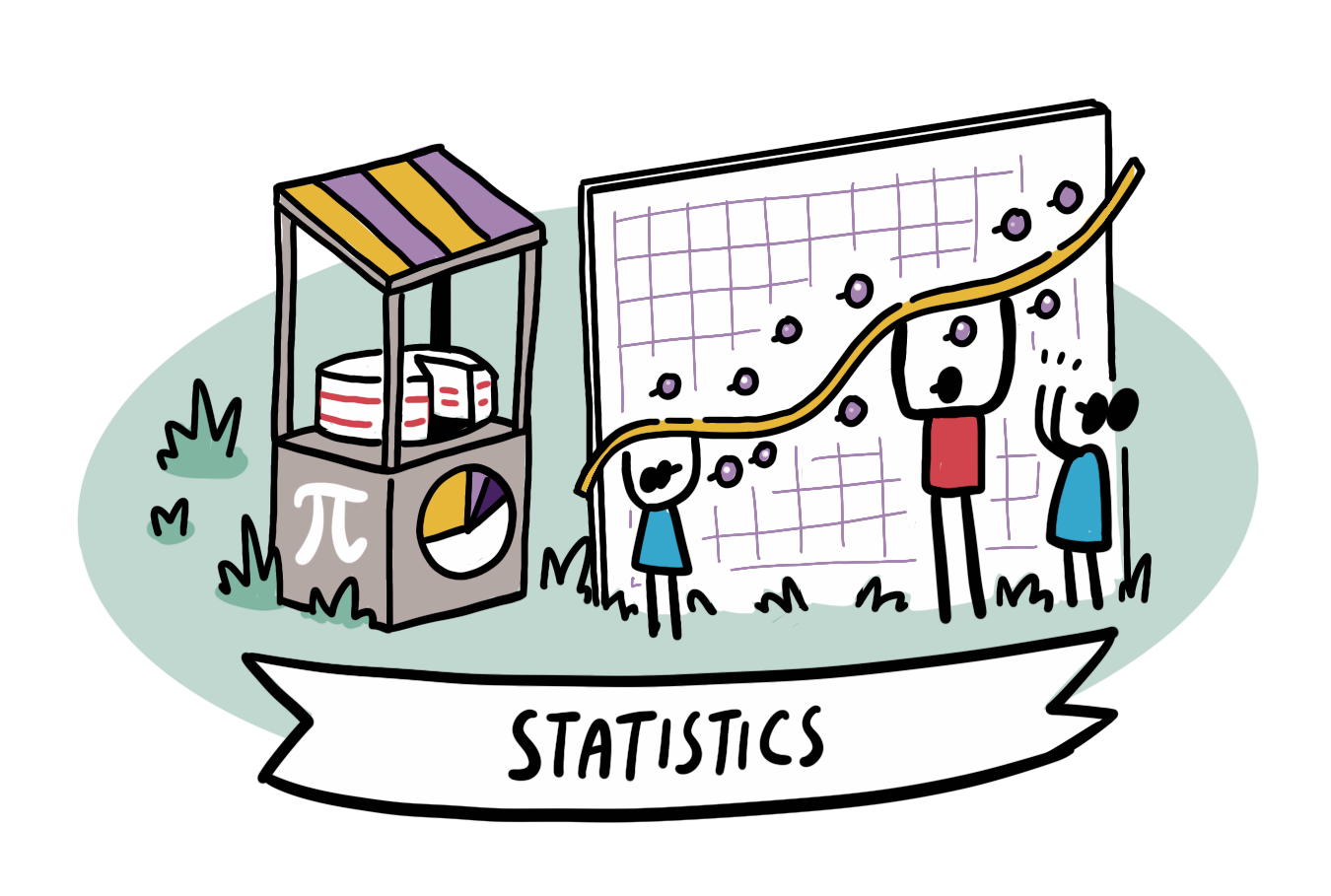Statistics WP and Outreach Events

For enquiries and visit requests please contact .
Campus events
We support Warwick's Widening Participation Team and the Advanced Mathematics Support Network (AMSP) with various on-campus events.
Watch this space for events planned for 24/25.
School visits
We are not able to support every event request and so we prioritise schools that are:
- Local to Coventry and Warwickshire
- Have a high proportion of students who meet the targets set out in the Warwick Access and Participation Plan.
We can deliver talks or interactive workshops on a variety of topics. Below is a list of some example topics but, on request, we may also be able to offer a bespoke session on topics of interest tailored towards a specific age group.
School visits are subject to staff availability.

Taking a Chance - KS2/KS3
In this interactive workshop we use dice and other paraphernalia to explore randomness. Students will learn about probability scales, relative frequency and consider the notion of a fair game.
Depending on the age group, students may also practice computing with fractions to solve concrete problems. Finally, time permitting, we explore careers in which an understanding of uncertainty and risk is essential.

Data Explorers - KS3/KS4
Data are collected everywhere and whatever we do, from online shopping and video streaming to social media and the internet.
This interactive workshop gives a taster on how to explore data to extract meaningful patterns and make predictions.

Rumour Mill - KS5
In this session we explore probabilistic models in epidemiology.
We will use the Binomial distribution to build complex models that explain how rumours (or infectious diseases) spread. We also discuss how to fit such models to data.
The session will illustrate the process of mathematical and statistical modelling and thus gives an insight into the work of a mathematical epidemiologist.

Mathematical Models meet Reality - KS5
Mathematical models are used in many different disciplines for helping to understand, or make predictions about, the real world. Examples include weather forecasting, or understanding the spread of an infectious disease. However, a mathematical model is not useful for these purposes unless it is “calibrated”. The calibration process uses observations of the real world (e.g. recent weather in the case of weather forecasting) to ensure the model is representative of reality. We demonstrate how models are calibrated using an interactive session, and begin to understand how this process involves many branches of mathematical sciences, including differentiation, integration, matrix algebra, programming, probability and statistics.
This talk is led by Dr Richard Everitt.

Big data and coin flipping - an intro to university mathematics - KS5
In this workshop we’ll explore what it’s like to study mathematics at university, and also get a flavour of what research in statistics looks like. Along the way we’ll encounter some fun illustrations of the uses of probability and statistics, such as the famous Monty Hall problem, how it can be explained using Monte Carlo methods, and also some interactive puzzles related to generating any probability using just a regular coin.
This talk is led by Dr Andi Q. Wang.

Reasoning about uncertainty - KS5
In this interactive workshop we explore how probability tools are used to study simple two or more player games. We compute the chance of different outcomes in given game settings. We also touch the notion of infinity and investigate what the outcomes would be if we could play a certain game indefinitely.
This workshop is led by Dr Zorana Lazic.

The Mathematics of Animal Locomotion - KS3/KS4/KS5
This talk explores how some simple mathematical ideas covered in school have been developed by mathematicians into a theory that helps understand the complexities of animal movement and how this has become the catalyst for huge advances in robotics.
This talk is led by Dr Martyn Parker.

Codes and Cryptography - KS3/KS4/KS5
We will discuss studying mathematics at university, and give a flavour to what research in statistics looks like. We will see some fun illustrations of probability and statistics such as the Monty Hall problem, how this can be solved by simulation, and some puzzles related to generating arbitrary probabilities using a coin.
This talk is led by Dr Martyn Parker.

Saving the Bees with Maths and Stats - KS4/KS5
Introduces Bayesian Networks, decision support, conditional independence, drawing on pupils' general knowledge on environmental issues.
For more information see this blog.
This session is led by Dr Martine Barons.
